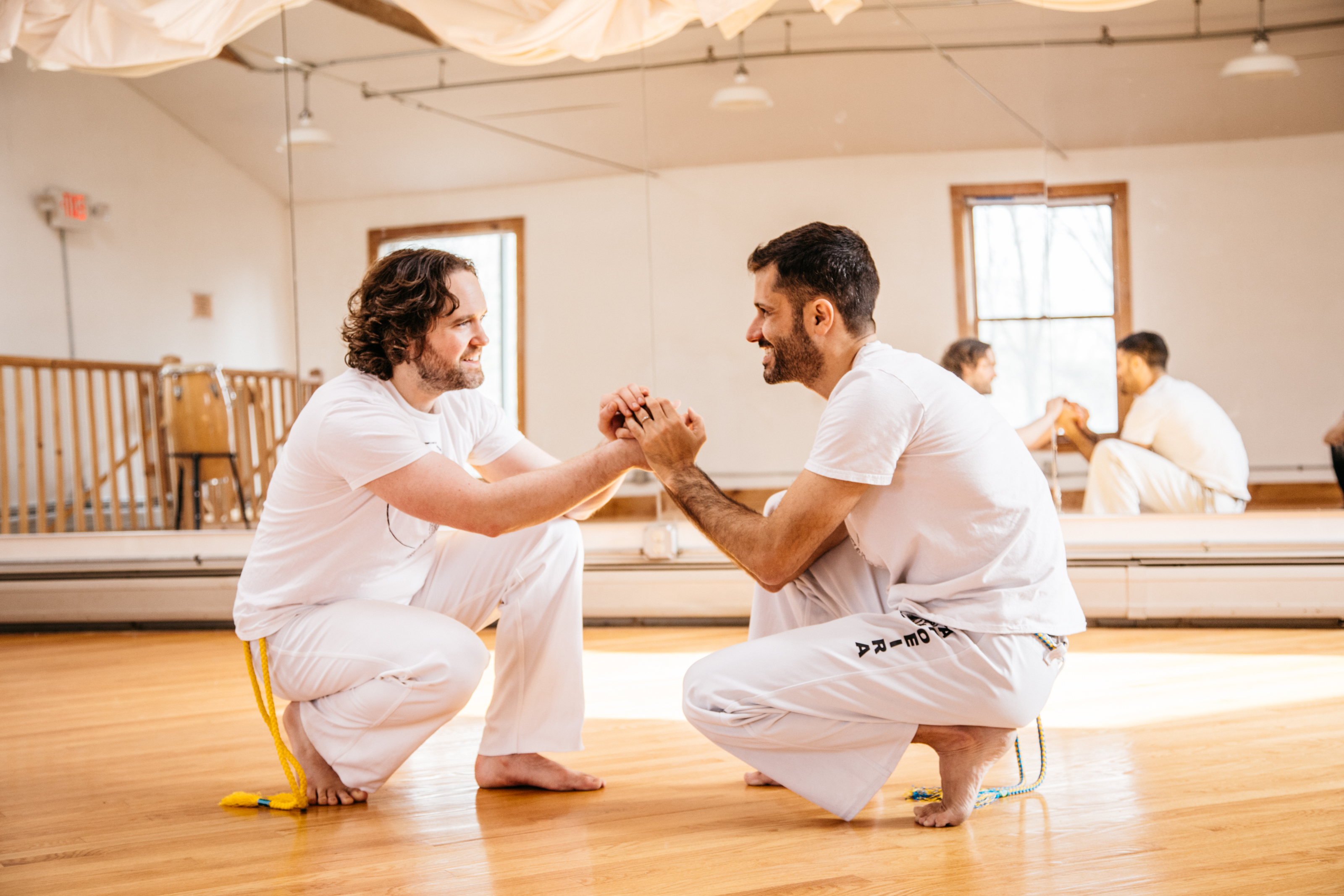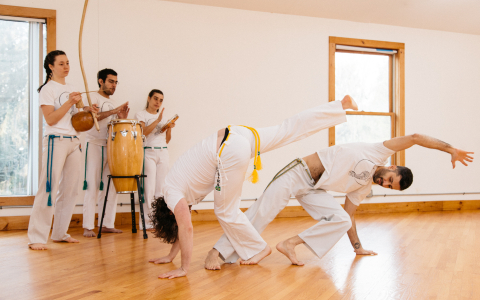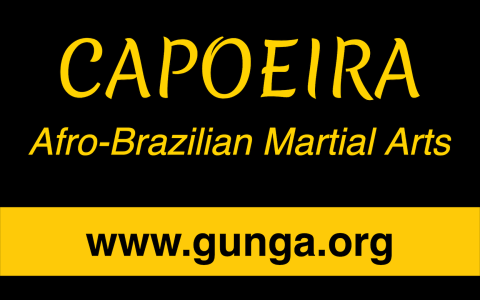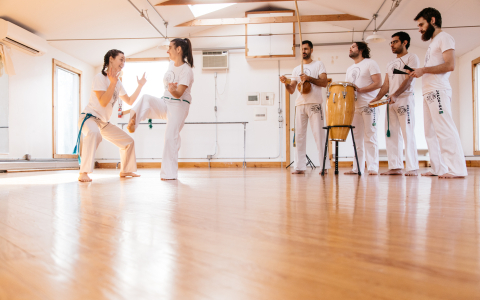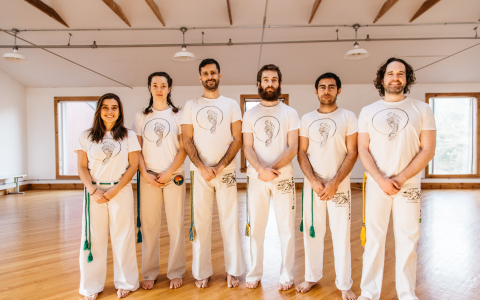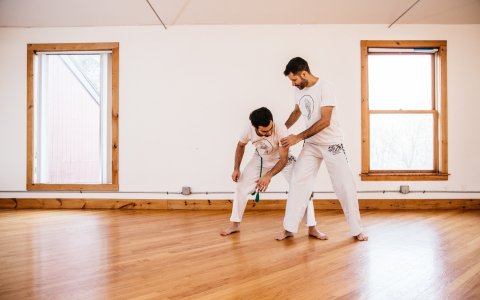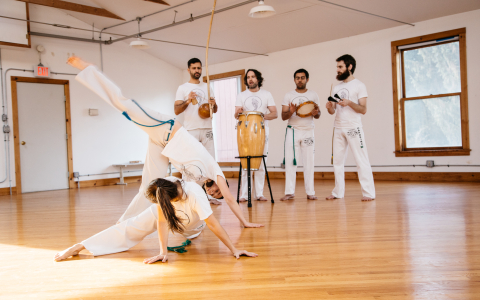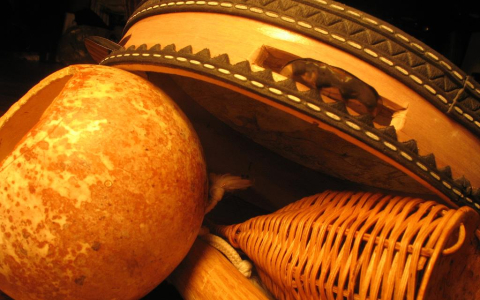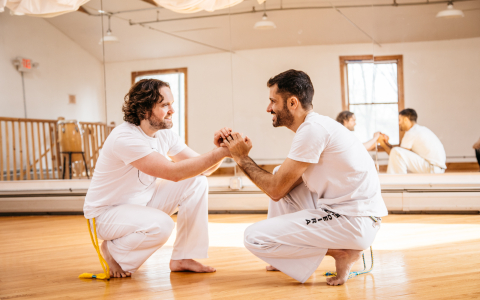We talked to: Capoeira Gunga do Vale
We talked to Capoeira Gunga do Vale
We recently spoke Bruno Trindade of Capoeira Gunga do Vale. Check out what he had to say and how things are going for the studio this year!
Could you tell us a bit about Capoeira?
Of course! It is a martial art disguised as both dance and ritual, allowing for self-expression and communication, even between people who do not speak the same language. Its roots are in Africa, and it ultimately came into full bloom in Brazil.
During the years of the slave trade, people of different backgrounds who spoke different languages were purposely brought together so that they could not communicate and therefore, would not be able to escape. In spite of their background differences, they started creating dances and art forms, which translated to ways of preserving multiple traditions and languages. Over time, even after slavery was abolished yet oppression remained, Capoeiristas continued to practice, often in secret, as the martial art remained illegal at the time. By establishing nicknames, they were able to protect themselves from the police. Over time, with an influx of Japanese settlers who brought forms of martial arts that were legal and accepted, Capoeira also became more socially acceptable and more widely practiced. Eventually, the president of Brazil became a fan and supporter of the art, and restrictions there were lifted, which allowed the practice to grow and thrive.
What made you choose Northampton for your studio’s location?
My family is Brazilian, and I’ve always done martial arts. I grew up in suburbs in the Midwest, where there wasn’t that much available. Eventually I went off to college in Ohio, and then attended grad school here in Massachusetts. I discovered Capoeira here, and once I started training, I never looked back. I really appreciate the dance and non-competitive elements of the practice, though self-defense is also a part of it. It is a dance that is open and inviting to both masculine and feminine-presenting people, and thus feels very inclusive and equal. There was a local group here before me for a bit, but once they disappeared, my instructor, who is in Lowell, suggested that I start my own studio. It began as a great way for me to continue training, and eventually grew into something I could see being a viable business. I am excited to say I am currently in a place where I can attract a larger, more diverse student body with positive energy and a real commitment to the practice.
What challenges have you faced in the past year plus, and what have you learned?
Oddly enough, mostly positive things came out of the past year and a half. We went fully remote for a while during cold months, when we couldn’t be outside. We did full Zoom classes, and that was such a time of gaining from the challenge of teaching in that manner.
We had to find ways of getting students to interact with the screen and ways to keep people engaged. I made sure to find ways to address each student individually, to make sure that they felt seen and heard. A couple of students started practicing for the first time via Zoom, and I’m honestly impressed by how caught up they are now that we are able to hold in-person classes.
Do you have any events coming up you’d like to share?
We are very excited about our graduation celebration event happening this Saturday, October 3rd. It’s free for anyone who wants to enjoy the performance and learn more about the studio.
As a business owner, how do you take time for yourself/to rejuvenate?
My kids and I have been doing a lot of outdoor activities, such as hiking and swimming. Though being outdoors has always been important to me, it’s become even more of a priority for us in the past year and a half. It gives us the time to unwind and reconnect with nature. And because I am so passionate about this business and art form, I truly feel revitalized whenever I am teaching or practicing Capoeira myself.
